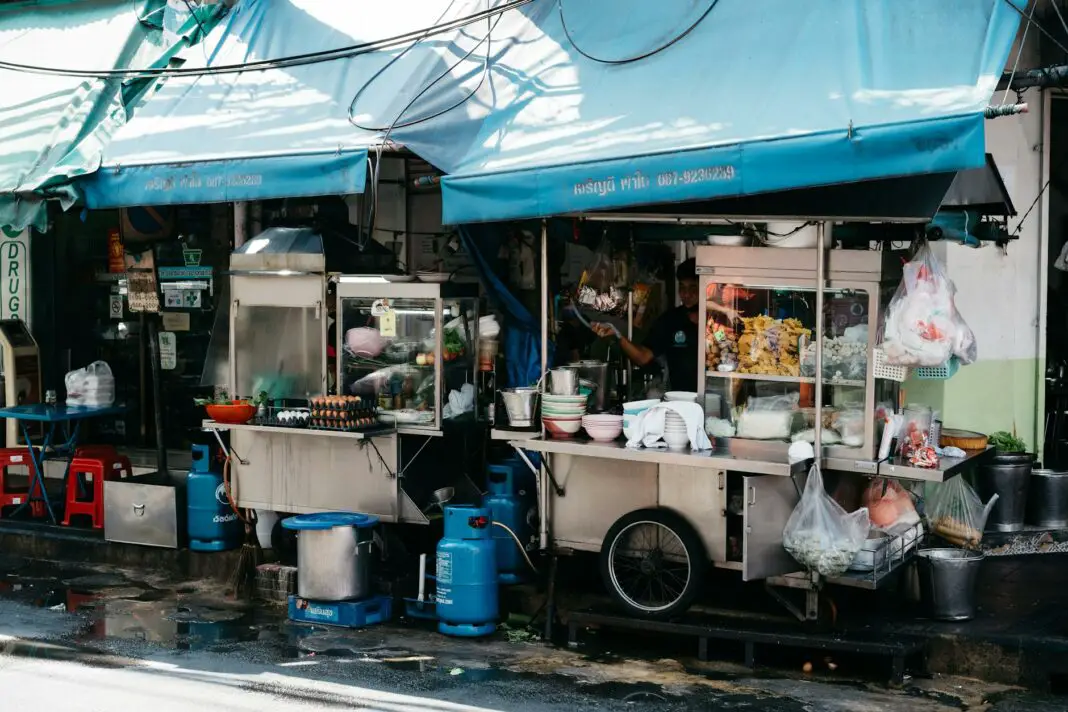Embarking on a trip to Thailand is like stepping into a vibrant tapestry woven with rich culture, stunning landscapes, and mouthwatering cuisine. This Southeast Asian gem has captivated wanderlust souls from around the world, enticing them with its warm hospitality and breathtaking natural wonders. However, the question arises: Is Thailand’s booming tourism industry jeopardizing its beautiful landscapes and pristine environments? This post will unravel the delicate balance between experiencing Thailand’s treasures and preserving them for future generations.
As we dive deeper, we will explore the allure of Thailand as a travel destination, the impact of tourism on its natural resources, and the ongoing efforts to protect its enchanting wonders. With actionable insights and engaging examples, this blog aims to provide a comprehensive view of Thailand’s tourism landscape while shedding light on sustainable travel practices. Join us on this journey as we celebrate Thailand’s beauty and consider our role in preserving it.
Table of Contents
- Thailand Calling: A Tourist’s Paradise
- Nature’s Treasures: The Jewel of Southeast Asia
- The Double-Edged Sword of Tourism
- Conservation Efforts: A Hopeful Outlook
- Sustainable Travel Tips for the Conscious Explorer
- Inspiring a Future: Our Duty to Preserve
- Frequently Asked Questions
Thailand Calling: A Tourist’s Paradise
Thailand stands as a bulwark of adventure, offering a myriad of experiences that cater to every type of traveler. From the bustling streets of Bangkok, where night markets and extravagant temples intermingle, to the serene beaches of Phuket and the verdant jungles of Chiang Mai, the options are endless. Each destination provides a unique glimpse into Thailand’s charm and culture. The legendary hospitality of the Thai people is both heartwarming and disarming, making visitors feel at home. Moreover, the tantalizing Thai cuisine, with its enticing flavors and fresh ingredients, is an essential part of the travel experience, further drawing people into the country.
As tourists flock to Thailand seeking adventure, relaxation, and cultural immersion, the economy thrives. The tourism sector has become vital, affecting local employment rates and contributing significantly to the GDP. Travelers often leave with unforgettable memories and a yearning for more, spreading the allure of Thailand far and wide. However, as captivating as this destination is, it is essential to recognize that continued tourism could strain the very elements that make it so extraordinary.
Nature’s Treasures: The Jewel of Southeast Asia
Thailand is home to some of the most breathtaking natural treasures on the planet. From the turquoise waters of its many islands to the remarkable limestone cliffs that dot the coastlines, the country embraces an incredible array of biodiversity. National parks, such as Khao Sok and Erawan, are a haven for unique wildlife and lush vegetation, drawing nature enthusiasts eager to explore pristine surroundings. Diverse ecosystems ranging from rainforests to coral reefs not only support local wildlife but also attract numerous eco-tourists who wish to connect with nature.
This rich tapestry of natural beauty is more than just scenery; it reflects the essence of Thailand itself. The country’s beaches, waterfalls, and forests are not only breathtaking but are revered by locals—many sites hold cultural significance. Yet, as tourism escalates, the fragility of these ecosystems faces unprecedented challenges, raising urgent questions about sustainability and preservation. To truly appreciate these natural treasures, it is imperative for both visitors and locals to champion their protection.
The Double-Edged Sword of Tourism
While tourism provides significant economic benefits, it can also have detrimental effects on Thailand’s environment and cultural heritage. With millions of visitors each year, popular destinations often experience overwhelming foot traffic, leading to pollution, habitat destruction, and strain on local resources. Iconic spots like Maya Bay and the Phi Phi Islands, once pristine paradises, have faced severe degradation due to overtourism, prompting authorities to take action.
The impact of increased tourism extends to local communities as well, where traditional lifestyles may be interrupted or altered due to commercialized experiences. These changes can lead to a dilution of cultural heritage, where authenticity is sacrificed for profit. Understanding this duality is essential for fostering respect towards Thailand’s rich cultural traditions and environmental sanctity, encouraging visitors to reflect on their role as responsible travelers.
Conservation Efforts: A Hopeful Outlook
In light of these challenges, Thailand is actively pursuing various conservation initiatives to mitigate the adverse effects of tourism. The government, alongside non-governmental organizations, has implemented measures to protect natural resources and promote sustainable tourism practices. Efforts to regulate tourist numbers at fragile sites have shown positive results, with areas like Maya Bay temporarily closing to allow ecosystems to regenerate.
Beyond preservation, community-based tourism initiatives are gaining traction, providing local residents with economic opportunities while fostering a greater appreciation for their culture. By integrating traditional practices and sustainable livelihoods, these endeavors celebrate local heritage while empowering communities to take charge of their resources. This collaborative approach offers hope, revealing that tourism can coexist with conservation when done thoughtfully and respectfully.
Sustainable Travel Tips for the Conscious Explorer
For those seeking to explore Thailand while leaving a positive impact, adopting sustainable travel practices is key. Prioritize eco-friendly accommodations that emphasize sustainability in their operations, such as those that utilize renewable energy or support local ecology. When venturing out, consider choosing local guides who share authentic insights into the culture and environment. Such practices contribute to an authentic experience while supporting local economies.
It is equally important to avoid single-use plastics by carrying reusable water bottles and bags while traveling. Participate in beach cleanup events; every little action counts! Connecting with local communities through workshops or events showcases the values of responsible tourism. Each traveler has the power to influence Thailand’s future while enjoying its wonders, ensuring its beauty remains for generations to come.
Inspiring a Future: Our Duty to Preserve
Thailand’s beauty and charm are undeniable. However, it is our collective responsibility to care for its treasures—to cherish its landscapes and promote sustainability in travel. By being aware of the impacts of tourism and actively participating in conservation efforts, travelers can help safeguard Thailand’s natural wonders. This preservation effort not only protects the environment but ensures that local cultures continue to thrive and that future generations can experience the stunning beauty of this extraordinary nation.
Ultimately, the goal should be to embrace travel as a means for enrichment and enlightenment, celebrating and protecting the marvels we encounter. Let’s make a conscious effort to be stewards of this breathtaking land, ensuring that our adventures do not come at the expense of its splendor.
Frequently Asked Questions
What are the top tourist destinations in Thailand? Popular destinations include Bangkok, Phuket, Chiang Mai, and the islands of Koh Samui and Koh Phi Phi, each offering a unique blend of culture and adventure.
How can I travel sustainably in Thailand? Choose eco-friendly accommodations, participate in local conservation efforts, minimize plastic use, and prioritize local experiences to travel sustainably.
What is the impact of tourism on Thailand’s natural resources? Increased tourism may lead to pollution, habitat destruction, and strain on resources, prompting local governments to enforce regulations to protect these areas.
How can tourists protect Thailand’s environment? Tourists can protect the environment by respecting guidelines at national parks, participating in clean-up efforts, and supporting local businesses that promote sustainability.
Is tourism beneficial for Thailand’s economy? Absolutely! Tourism significantly contributes to Thailand’s GDP and provides employment opportunities, supporting local economies throughout the country.
Image Credit: Pexels





